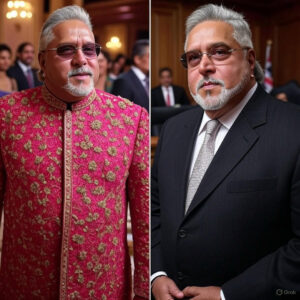Jamie Dimon, Chairman and CEO of JPMorgan Chase, has long been a titan in the financial industry. Known for his visionary leadership and pragmatic crisis management, Dimon recently captured global attention with a striking prediction: future generations could work just 3.5 days a week and live to 100 years old. This forecast, rooted in the transformative potential of artificial intelligence (AI) and technological advancements, has sparked widespread debate about the future of work and the impact of innovation.
Let’s dive deeper into Jamie Dimon’s bold vision, his illustrious career, his thoughts on AI and banking, and how he has shaped JPMorgan Chase into a global financial powerhouse.
Table of Contents
ToggleJamie Dimon’s Vision: A 3.5-Day Work Week and 100-Year Lifespans

The Prediction That’s Turning Heads
Jamie Dimon envisions a future where AI and technology redefine work-life balance and human longevity. According to Dimon:
Shorter Work Weeks: Advances in AI could streamline business operations, potentially reducing workweeks to just 3.5 days.
Extended Lifespans: Breakthroughs in healthcare and technology might enable people to live up to 100 years, fundamentally altering life’s trajectory.
This optimistic outlook reflects Dimon’s belief in AI’s potential to revolutionize industries while addressing the complexities of job displacement and societal adjustments.
Jamie Dimon: A Career of Excellence and Resilience
From Humble Beginnings to Financial Leadership
Jamie Dimon’s journey to the pinnacle of the banking world is a testament to his ambition and strategic prowess:
Early Career: After graduating from Tufts University and Harvard Business School, Dimon began as a management consultant at Boston Consulting Group before joining American Express under the mentorship of Sandy Weill.
Bank One Turnaround: As CEO of Bank One in 2000, Dimon revitalized the struggling bank, showcasing his exceptional leadership skills.
JPMorgan Chase: Following Bank One’s merger with JPMorgan Chase in 2004, Dimon became CEO in 2006. Under his leadership, the bank has grown into one of the world’s largest and most profitable financial institutions.
Leadership During Crises
Steering JPMorgan Chase Through Turbulent Times
Jamie Dimon’s crisis management skills have been pivotal in shaping JPMorgan Chase’s legacy:
2008 Financial Crisis: Dimon’s strategic acquisitions, such as Bear Stearns and Washington Mutual, not only stabilized the financial system but also positioned JPMorgan Chase as a global leader.
Pragmatic Risk Management: His conservative approach to risk and hands-on leadership have set a benchmark for resilience and foresight in the financial industry.
Jamie Dimon’s Views on AI and Technology
Transforming Work and Society
Dimon is a strong advocate for AI’s potential to transform industries:
Optimistic Outlook: He believes AI can enhance work-life balance and drive societal progress, contributing to shorter workweeks and extended lifespans.
Balanced Perspective: While acknowledging job displacement, Dimon highlights the historical trend of technology creating new opportunities and improving living standards.
Healthcare Advancements: AI-driven innovations could revolutionize healthcare, making longer, healthier lives a reality.
Jamie Dimon on Banking and Cryptocurrencies
Innovation and Skepticism
Banking Leadership: Dimon has embraced AI and technology to enhance efficiency and customer service at JPMorgan Chase, positioning the bank at the forefront of innovation.
Cryptocurrency Criticism: While skeptical about cryptocurrencies like Bitcoin, Dimon acknowledges the transformative potential of blockchain technology for data sharing and transaction efficiency.
Jamie Dimon’s Leadership Philosophy
The Traits of a Visionary Leader
Dimon’s leadership style is rooted in pragmatism, humility, and resilience:
Humility and Openness: He values authenticity and fairness, fostering a culture of inclusion and morale.
Discipline and Planning: Dimon emphasizes thorough planning and fact-based decision-making.
Resilience and Accountability: His ability to navigate crises and adapt to challenges defines his leadership legacy.
Jamie Dimon’s predictions about the future of work and longevity are not just provocative; they underline his belief in AI’s transformative potential. From steering JPMorgan Chase through crises to envisioning a world reshaped by technology, Dimon’s insights continue to inspire and provoke thought. As AI and technological advancements accelerate, Dimon’s vision of a 3.5-day workweek and 100-year lifespans challenges us to rethink our approach to work, innovation, and leadership.

Jugaad on Two Wheels: The Hilarious Bike Parcel Hack in Karnataka
The Great Karnataka Bike Parcel Hack: A Jugaad Masterclass #RapidoParcel: In a creative yet controversial move, ride-hailing platform Rapido has found a way around Karnataka’s

Denmark’s Digital Sovereignty Revolution: Linux and LibreOffice Lead the Way
Introduction to Denmark’s Bold Move In June 2025, Denmark’s Ministry of Digital Affairs made headlines by embracing digital sovereignty, ditching Microsoft Windows and Office 365

🏏Sports as a Business Strategy: Insights from Vijay Mallya’s RCB Ownership
🧠 Sports as a Business Strategy (Tool) In modern business, few platforms offer better engagement and emotional connection than sports. From football clubs in Europe

🙏 Apologies in Leadership: Vijay Mallya Public Apology
🧠 Introduction: The Role of Apologies in Leadership In the corporate world, apologies aren’t signs of weakness—they’re strategic acts of leadership. When made with sincerity

Audiobook Production Costs: Navigating Recording Artists, Studio Expenses, and AI’s Impact
The audiobook industry is booming, with over 130 million listeners in the U.S. alone in 2021 and a growing global appetite for audio content. Producing

Media Trial of Vijay Mallya: How Public Perception Shaped Vijay Mallya’s Legacy
Introduction: Media’s Influence on Business Narratives In today’s hyper-connected world, media narratives can make or break a business reputation. For Vijay Mallya, once known as

